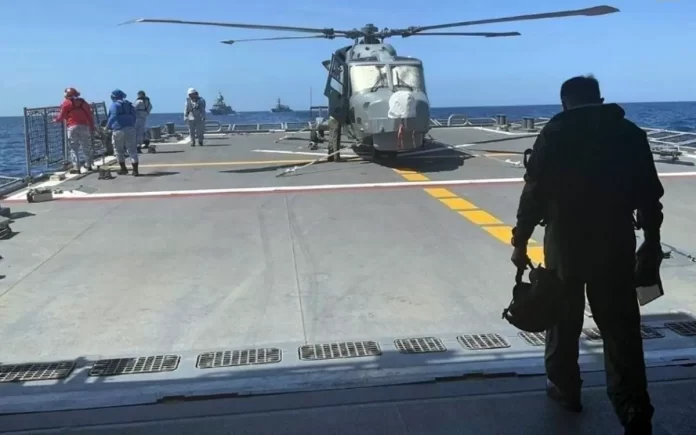Manila: China flexed its military muscle on Sunday with “combat patrols” in the South China Sea, a move coinciding with joint drills held by the Philippines, the United States, Japan, and Australia in the contested waters.
Amidst escalating tensions, the maritime activities unfolded just days before US President Joe Biden was slated to engage in the first trilateral summit with the leaders of the Philippines and Japan, aiming to address the simmering dispute over the South China Sea.
The People’s Liberation Army (PLA) Southern Theater Command of China announced the organization of “joint naval and air combat patrols in the South China Sea,” asserting control over all military activities that could potentially exacerbate the situation in the region.
Also Read: Yemen Crisis: Houthis Launch Attacks on Three Ships within 24 Hours
Concurrently, the Philippine military underscored the significance of its drills with the US, Australia, and Japan, affirming the commitment to bolstering regional and international cooperation in maintaining a free and open Indo-Pacific. Termed the “Multilateral Maritime Cooperative Activity,” the exercises comprised naval and air force units from all four nations, engaging in communication exercises, division tactics, and coordinated maneuvers.
While the Japanese embassy in Manila confirmed the inclusion of “anti-submarine warfare training” in the drills, further details regarding the nature of the Chinese military operations in the waterway remained undisclosed.
The United States has been actively fortifying defense alliances in the region to counter China’s expanding influence. Emphasizing its unwavering commitment to its treaty ally, the Philippines, against any armed aggression in the South China Sea, the US has drawn Beijing’s ire.
Also Read: Ukraine’s Plea for Aid: Zelensky Warns of Defeat Without US Support
China’s expansive territorial claims in the South China Sea, in defiance of international rulings, have triggered tensions with neighboring countries like the Philippines. The recent spat intensified when China’s Coast Guard alleged that Philippine ships engaged in “illegal” operations near a disputed reef, prompting China to enforce its jurisdiction in the region.
Philippine President Ferdinand Marcos, adopting a more assertive stance compared to his predecessor Rodrigo Duterte, has pledged to resist China’s encroachments in the sea. Vowing not to succumb to intimidation, Marcos asserted the Philippines’ readiness to respond to provocations with measured countermeasures.
As maritime tensions continue to simmer in the South China Sea, the region remains a focal point of geopolitical contention, with implications for regional stability and international security.



